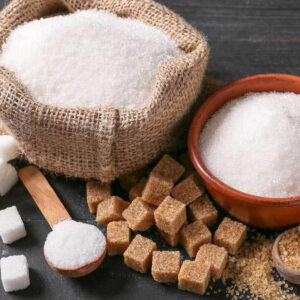The discussion of beet sugar vs cane sugar often includes comparisons of their impact on health.
The discussion of beet sugar vs cane sugar often includes comparisons of their impact on health.
Blog Article
Discover the Uses and Conveniences of Beet Sugar Vs Cane Sugar in Your Daily Diet Regimen
Discovering the distinct top qualities of beet and cane sugar exposes more than simply their sweetening abilities; it highlights their one-of-a-kind influence on wellness and cookeries. Beet sugar, understood for its subtle flavor, is usually preferred in fragile treats, whereas cane sugar, with its hint of molasses, adds richness to durable dishes. Each kind holds its very own nutritional profile and glycemic ramifications, inviting a much deeper understanding of their duties in a well balanced diet plan and sustainable usage methods.
Beginning and Production Processes of Beet and Cane Sugar

The unique climates and soil kinds required for growing sugar beets and sugarcane add to distinctions in their cultivation practices and geographic distribution, influencing the business economics and sustainability of their manufacturing. beet sugar vs cane sugar.
Nutritional Comparison In Between Beet Sugar and Cane Sugar
Despite stemming from various plants, beet sugar and cane sugar are nutritionally extremely similar, both primarily being composed of sucrose. Each supplies concerning 4 calories per gram, equating to about 16 calories per teaspoon. Structurally, both sugars are made up of approximately 99.95% sucrose, with marginal amounts of other compounds like moisture and trace minerals, which do not significantly modify their dietary accounts.

Inevitably, when choosing in between beet sugar and cane sugar based upon dietary web content about his alone, both deal the same advantages and downsides as they are essentially types of the exact same particle-- sucrose, supplying quick power without various other nutrients.
Effect On Wellness: Glycemic Index and Caloric Content
Discovering further into the impacts of beet sugar and cane sugar on health, it is vital to consider their glycemic index and calorie content. The glycemic index (GI) of both beet and cane sugar is around 65, classifying them as high-GI foods, which can create fast spikes in blood glucose levels.
Each sort of sugar consists of about 4 calories per gram, making their calorie content equivalent. For those monitoring caloric intake, particularly when taking care of weight or metabolic wellness problems, understanding this equivalence is vital (beet sugar vs cane sugar). However, too much usage of any kind of high-calorie, high-GI food can contribute to wellness issues such as excessive weight, cardiovascular disease, and insulin resistance.
Environmental and Economic Considerations of Sugar Manufacturing
Beyond wellness effects, the manufacturing of beet and cane sugar also increases significant ecological and economic issues. Sugar beet farming tends to require cooler environments and has a reduced geographical footprint contrasted to sugar cane, which prospers in tropical areas. Nevertheless, both plants are intensive in regards to water use and land profession, possibly causing deforestation and water deficiency. Financially, the international sugar market is extremely unstable, influenced by modifications in global trade policies and subsidies. Several nations incentivize sugar production through financial support, skewing market value and impacting small-scale farmers adversely.
In addition, making use of pesticides and fertilizers in both beet and cane visit our website sugar farming can cause soil destruction and air pollution, more influencing biodiversity and regional water bodies (beet sugar vs cane sugar). The selection between cultivating sugar beet or cane often pivots on local environmental conditions and economic elements, making the sustainability of sugar production a complex issue
Culinary Applications and Flavor Distinctions
While the ecological and economic elements of sugar production are undoubtedly significant, the choice between beet and cane sugar likewise influences cooking applications and taste profiles. Beet sugar, obtained from the sugar beet plant, is known for its incredibly neutral preference. This makes it a functional component in cooking, where it does not change the flavor of various other elements. It liquifies promptly and is excellent for usage in cakes, cookies, and pastries.
Walking stick sugar, drawn out from sugarcane, typically maintains molasses traces, which give a distinct splendor and depth. The minor variant in dampness content between beet and cane sugar can impact the structure and uniformity of meals, making cane sugar a recommended choice for details recipes that benefit from its unique homes.

Conclusion
Finally, both beet and cane sugar have distinct beginnings and production processes, using similar dietary profiles with small differences in sodium web content and flavor. While their influence on wellness, specifically pertaining to glycemic index and calories, is similar, image source the selection in between them usually comes down to environmental, financial variables, and specific cooking demands. Understanding these aspects can assist customers in making notified choices that straighten with their wellness objectives and taste preferences.
Report this page